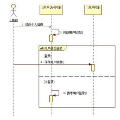When using a tool, the grasps used for picking it up, reposing, and holding it in a suitable pose for the desired task could be distinct. Therefore, a key challenge for autonomous in-hand tool manipulation is finding a sequence of grasps that facilitates every step of the tool use process while continuously maintaining force closure and stability. Due to the complexity of modeling the contact dynamics, reinforcement learning (RL) techniques can provide a solution in this continuous space subject to highly parameterized physical models. However, these techniques impose a trade-off in adaptability and data efficiency. At test time the tool properties, desired trajectory, and desired application forces could differ substantially from training scenarios. Adapting to this necessitates more data or computationally expensive online policy updates. In this work, we apply the principles of discrete dynamic programming (DP) to augment RL performance with domain knowledge. Specifically, we first design a computationally simple approximation of our environment. We then demonstrate in physical simulation that performing tree searches (i.e., lookaheads) and policy rollouts with this approximation can improve an RL-derived grasp sequence policy with minimal additional online computation. Additionally, we show that pretraining a deep RL network with the DP-derived solution to the discretized problem can speed up policy training.
翻译:当使用工具时,用于拾取、重新摆放和保持适当姿势进行所需任务的抓取可能是不同的。因此,自主手持工具操作的关键挑战在于找到一系列抓取步骤,同时持续保持力闭合和稳定性。由于建模接触动力学的复杂性,强化学习(RL)技术可以在高度参数化的物理模型受到影响的情况下在这个连续空间中提供解决方案。然而,这些技术在适应性和数据效率之间存在权衡。测试时,工具属性、期望轨迹和期望应用力可能与训练场景有很大不同。适应此需要更多的数据或计算密集的在线策略更新。在这项工作中,我们应用离散动态规划(DP)的原则来增强具有领域知识的RL性能。具体而言,我们首先设计了一个计算简单的环境近似。然后我们在物理模拟中展示,在这个近似的环境中进行树搜索(即,前瞻)和策略滚动,可以在最小的在线计算下改善RL导出的抓取序列策略。此外,我们还表明,将DP导出的离散问题的解用于深度RL网络的预训练可以加速策略的训练。



